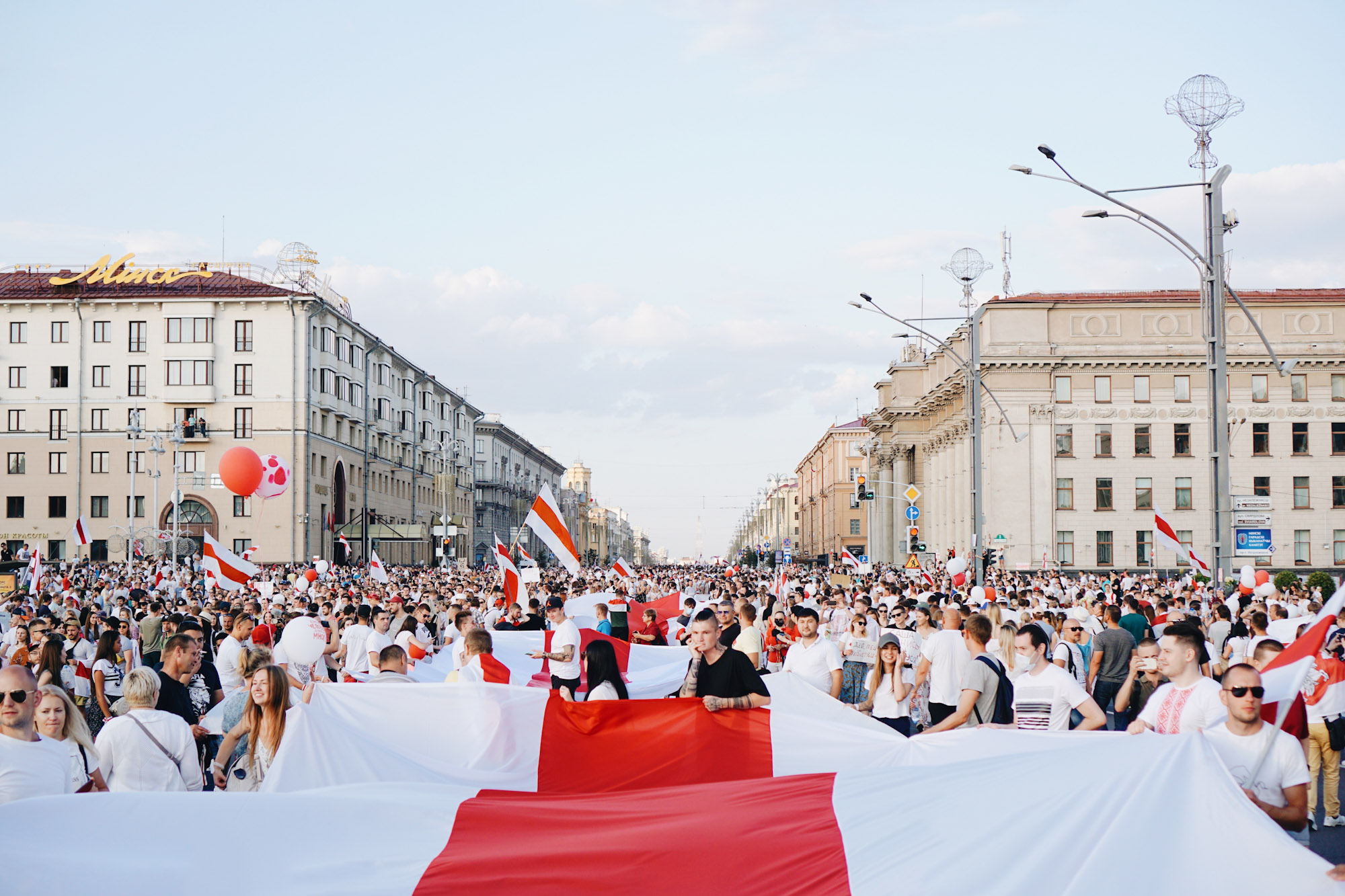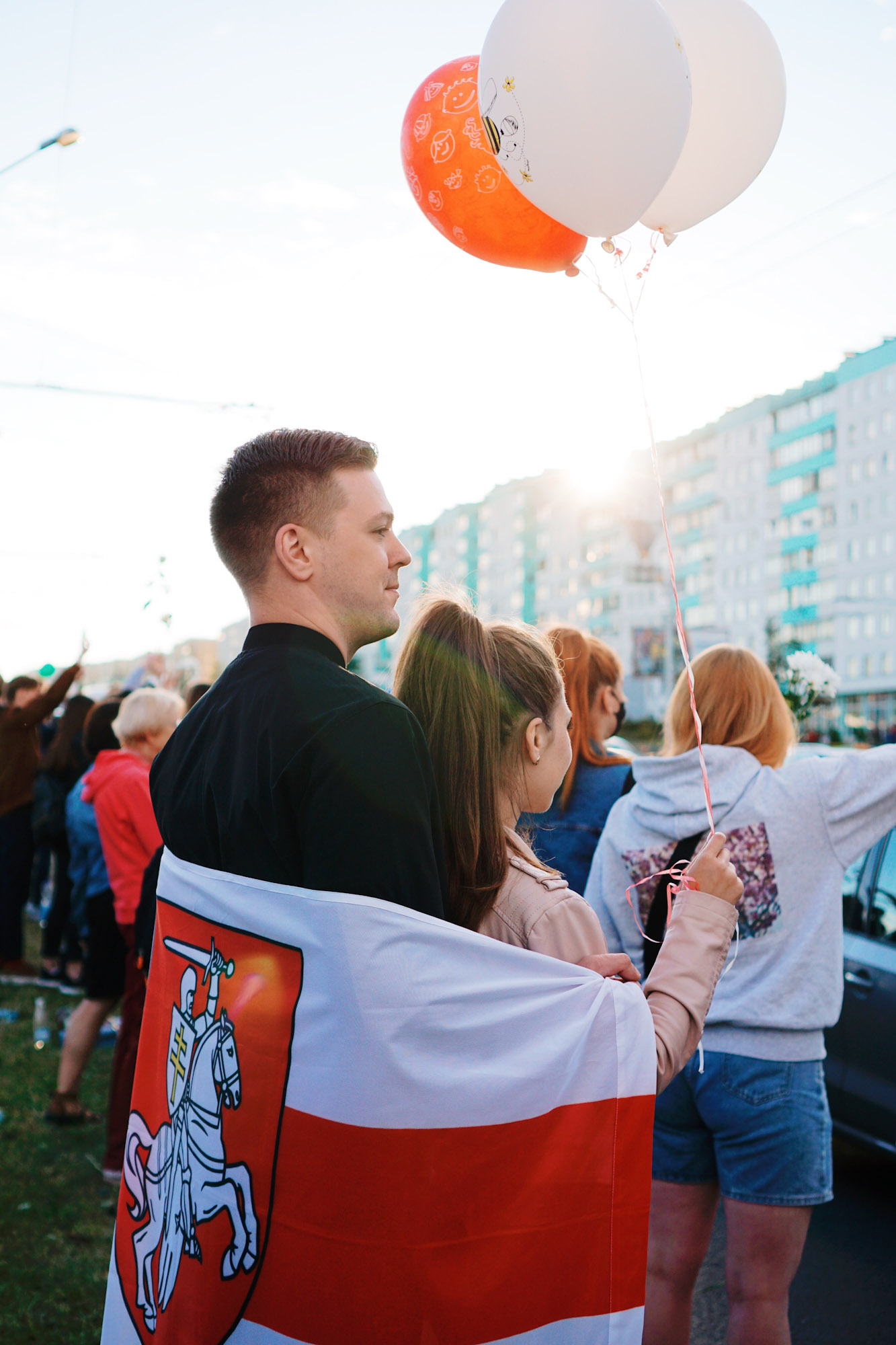
The early 1990s represented a turning point in history. The iron curtain was pulled away, accompanied by a sense of optimism and a window of opportunity to achieve freedom and democracy in the whole of the former Soviet Union. In the case of Belarus, the euphoria was short-lived.

On August 25, 1991, Belarus formally declared its independence from the Soviet Union. However, since 1994, the country has been run by authoritarian President Aleksandr Lukashenka. For almost 30 years, Lukashenka has worked to consolidate his power in an increasingly brutal fashion. While Belarus purportedly holds democratic elections, and oppositional parties do exist and operate, the electoral outcome is hardly up for grabs. Lukashenka exercises a wide arsenal of tools to ensure opposition parties stay repressed. He limits access to independent media coverage, voter coercion is widespread, and a biased election commission ensures a lack of transparency. The Lukashenka regime is no stranger to simply arresting or detaining opposition candidates on trumped up charges, as well. It appears that Minsk has reverted to the Soviet playbook on authoritarianism, as opposed to promoting a free and open society. That was until 2020.
Much like the early 1990s, August 9, 2020, was a turning point for Belarus. Following a fraudulent election, Lukashenka’s despotism intensified. Thousands of Belarusian citizens took to the streets in peaceful protest of the fraudulent electoral outcome in what was the largest series of demonstrations in the history of Belarus, only to be met with police batons and boot leather. In fact, all three opposition candidates—Siarhiej Tsikhanouski, Valery Tsapkala, and Viktar Babaryka—were either arrested or fled the country before the election even occurred. In the candidates’ place, three women emerged to lead the opposition—Sviatlana Tsikhanouskaya, Veronika Tsapkala, and Maria Kolesnikova. Lukashenka did not believe that these women posed a legitimate threat to the regime and thus allowed Sviatlana Tsikhanouskaya to run for president, a decision that gave rise to a new and emboldened democratic movement.
Today marks the two-year anniversary of Belarus’s democratic revolution, in which citizens confirmed that the spirit of civic activism is alive and burgeoning. Now, the pro-democratic movement has a new window of opportunity to capitalize on this spirit of collective activism, given Russia’s war of aggression in Ukraine, and an increasing weariness among the Belarusian population.
As the war drags on, increasing numbers of Belarusian citizens worry about the prospect of conscription and are feeling their financial wellbeing deteriorate. Dissatisfaction with the war is even shared by key members of the government, as evidenced by the resignation of Deputy Defense Minister Viktar Gulevich and diplomat Natalia Khvostova, and reports of increased defections and resignations among the Belarusian military.
Given this opportunity, Sviatlana Tsikhanouskaya has capitalized on the growing anti-war sentiment, and incorporated it into her general pro-democratic platform. This dramatic change in public mood provides new opportunities for the opposition to mobilize.
Recognizing this opportunity, the International Republican Institute (IRI) has committed itself to providing the necessary assistance to spur pro-democratic change in Belarus. This assistance includes support for Sviatlana Tsikhanouskaya in the organization of oppositional activist networks and in the development of targeted campaign messages for audiences both inside and outside of Belarus. IRI has also partnered with Veronika Tsapkala to plan projects and initiatives that promote women’s leadership to establish networks of women’s activists interested in Belarus’s democratic future.
On this anniversary, the opposition is calling for the involvement of wider forces as they implore democratic allies around the world to engage in the active support of the Belarusian people. That call to the cause further includes a plea for aid in Ukraine’s effort to repel the Russian invaders.
In contrast to the missed opportunities of the early 1990s, triumph in Ukraine would mean validation of the Belarusian anti-war movement, reaffirming a nationalistic belief in the optimistic and irresistible faith that positive change can happen through unrelenting collective action.
Top